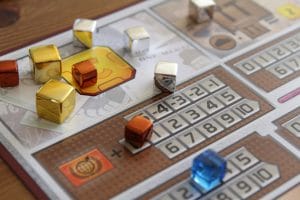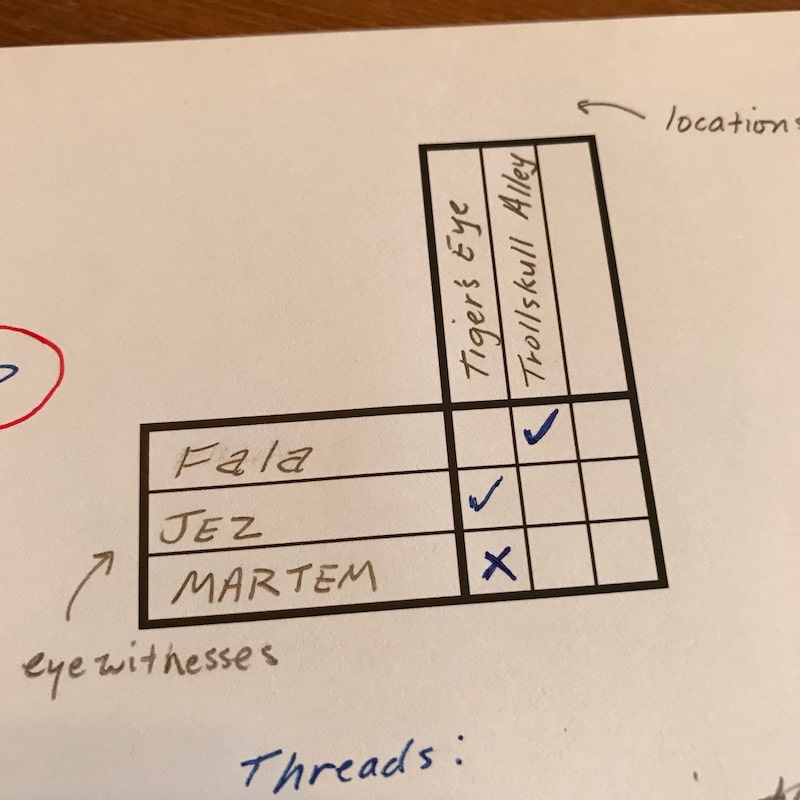Teaching board games can be quite the challenge. Between managing personalities, answering rules questions, and monitoring the fondue pot, you have your hands full.
In my last article about approaching the daunting task of teaching board games, we created a general outline to follow. However, there are tons of other distractions that are going to interfere with that process. Something about the best laid plans, right?
Let’s talk about those challenges, and ways that we can overcome them. After all, the fondue is boiling over and needs your attention!

Information Overload
When you’re teaching a game, it’s important to note that people have different capacities for learning. You can only pour so much water into the cup before it begins to overflow.
Instead of doing a complete read-through of the rules, try to communicate the big picture. What do the players need to know to play the game? When publishers provide player aids, that’s a huge boon for everyone at the table.
However, if you hand the aids out too soon, that could also create confusion. Generally, you’d want to dish those out at the point where it makes sense for the explanation.
For example, let’s say the player aids describe actions players can take on their turn. After you’re done explaining those actions, give out that player aid so players have a reference.
What happens if you don’t have any player aid? Sometimes a game might just be too complicated. Strip out everything: optional content, variations, etc. Keep it as bare-bones as possible.
It might also help to make comparisons to mechanics in other games that the people may have played. Making connections across genres that people might know creates a sense of familiarity with the new game.
Missing Rules
One of the worst things when learning a game is when you come up with a grand strategy that ends up being cut-off by the teacher – “Oh, sorry, you actually can’t do that.” How deflating!
When you’re teaching a game, there’s a fine line you’re trying to dance between spending time going over all the tiny details and actually starting the game. In doing so, there’s bound to be some rules missed.
On top of that, there can sometimes be some interesting rules interactions that might be unlikely but possible. If you’ve ever played Magic: the Gathering, you know exactly what I’m talking about.
The best way to avoid this issue is to try and foresee the issue before it arises. If a game has multiple ‘global’ phases, you might recognize certain situations might be more common in certain phases. It can be difficult, but these one-off rules are going to be easier to explain in the moment. If you mix them in with the other rules, the odds of people remembering them is pretty low.
If the issue does happen, however, the best you can do is explain the rule and move on. It might rub some people the wrong way, but the key is to emphasize that people are learning and that sort of stuff is bound to happen.
Teaching Advantage
Another thing that comes up when teaching games is that the teacher has a distinct advantage. It makes sense: if you teach someone how to drive a car, it’s inferred that you at least mildly know what you’re doing.
For whatever reason, people can sour a bit in this case. It might be that they feel like they’re either being taken advantage of, or that they’re not getting the entire scope of the rules on purpose.
As a teacher, you can dial back on pummeling the new players and focus on different strategies instead. If you did that to me in Goldeneye 64, I might think twice about playing that game with you in the future.
Instead, teachers balance out the desire to win with the desire to “impress”. Show off some cool interactions or strategies to wow the players. Focus on the best parts of the game to keep the excitement high.
Game Psychology
There are definite issues when people are learning a game for the first time, while also trying their best to win. The brain can only focus on so much. When you learn a game, you’re activating memory modules on top of your analytical nodes. I’m not a brain scientist, so this is mostly conceptual, but bear with me.

When you’re listening to the rules, you are getting pieces of the logic puzzle. As the information comes into your mind, your brain is trying its best to assemble them in an appropriate way. This includes making interactions between each rule.
At the same time, the game starts and now you’re splitting your focus in many more ways. What are the other players doing? What are you going to do on your turn? What are these meeples for?!
The overall strategy might be cloudy too, especially with heavier euro games.
Walking through a sample round with open-hands, discussing player options is really helpful here. It takes off the pressure of trying to win right off the bat, which can cause some internal stress subliminally. Overall, it creates a safer, inclusive environment where players can focus on understanding the game.
Overcoming Obstacles
Games are supposed to be fun. Teaching them should be fun too! If you find yourself constantly teaching games to people, you should be applauded for your efforts. Not only are you spreading the hobby, but you’re also exercising patience and social aptitude.
Players learn at different rates. You could teach the same game to two different groups and get wildly variable results. Adapting your style to understand the player’s strengths is a useful skill that can’t be understated.
I wish you the best of luck in your teaching endeavors. Hopefully this list gives you some insights into the challenges that you might face, and the potential solutions to those challenges.
Now go check on that fondue, I’m hungry.

